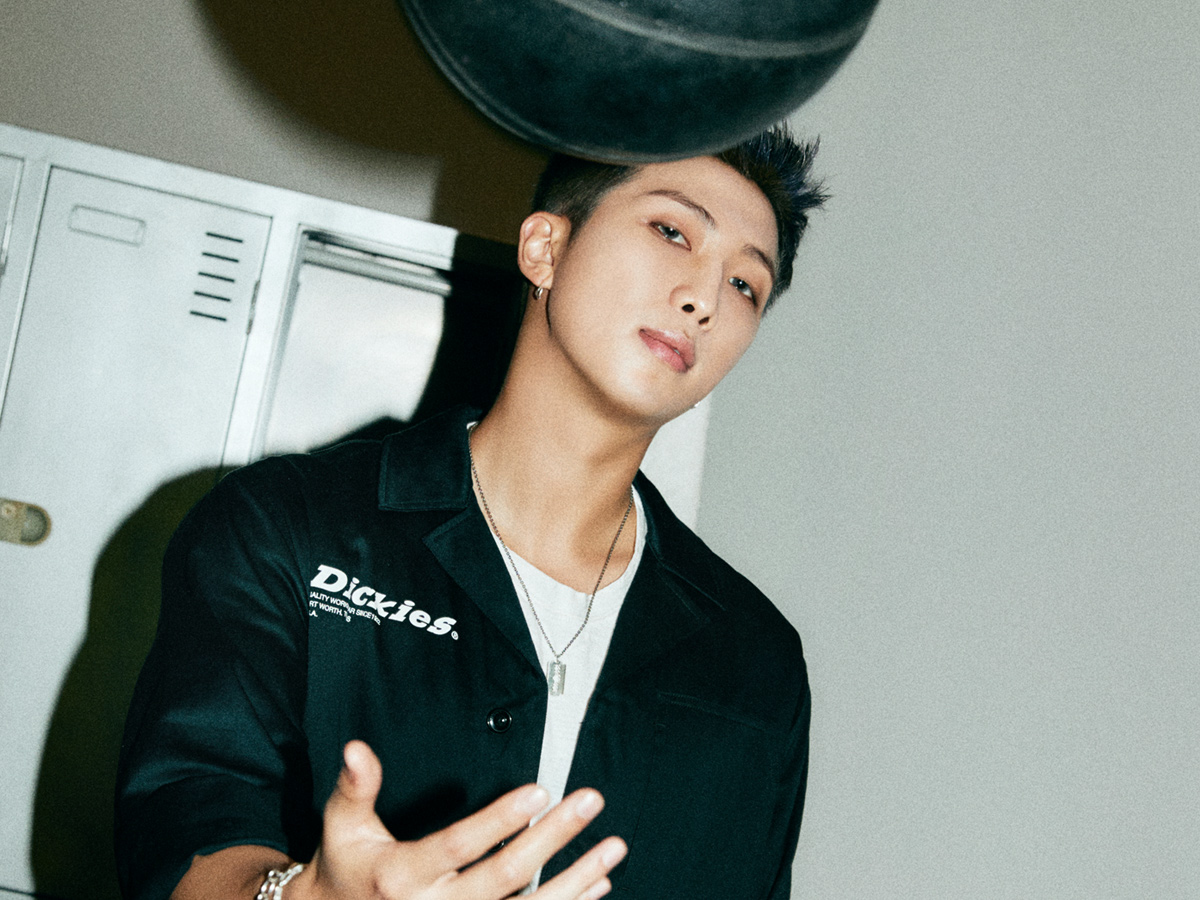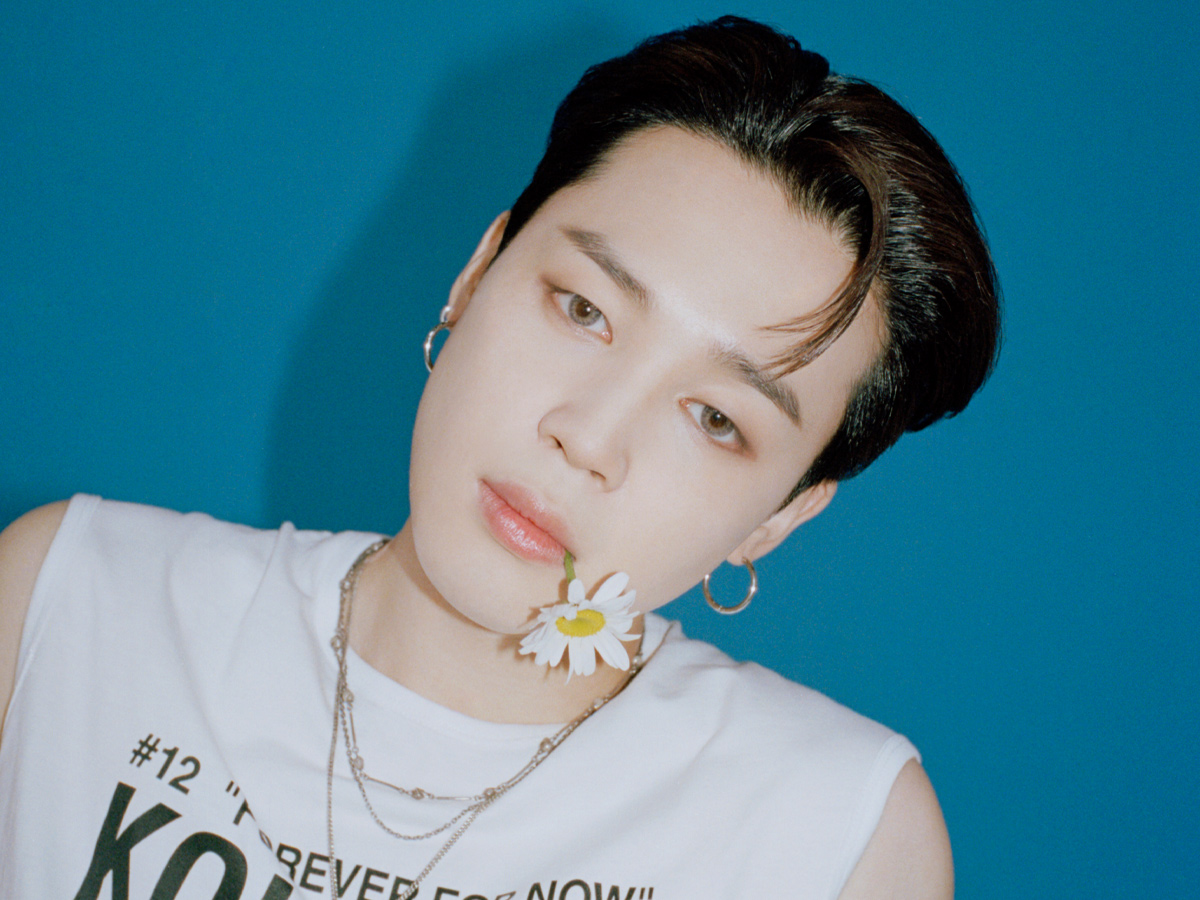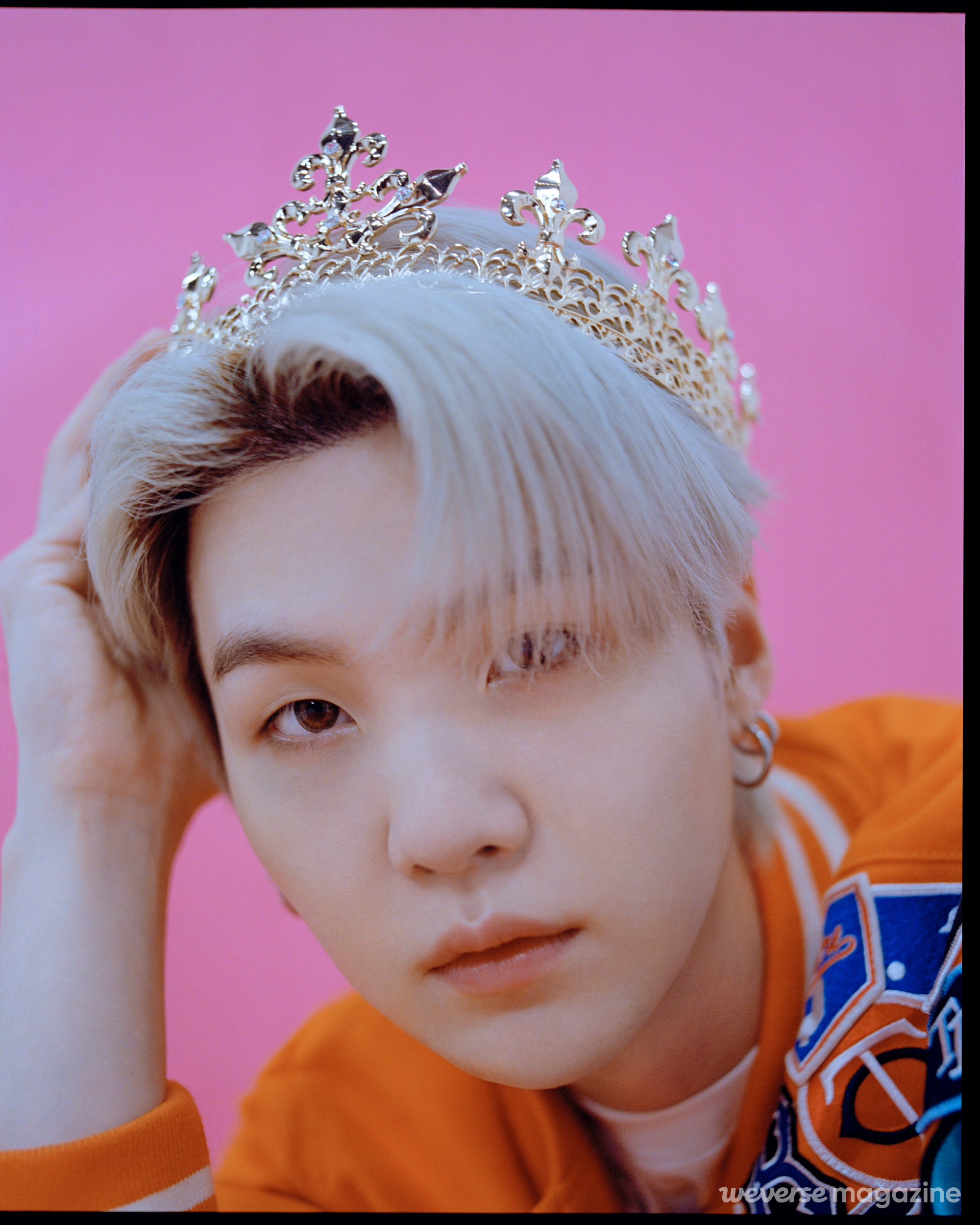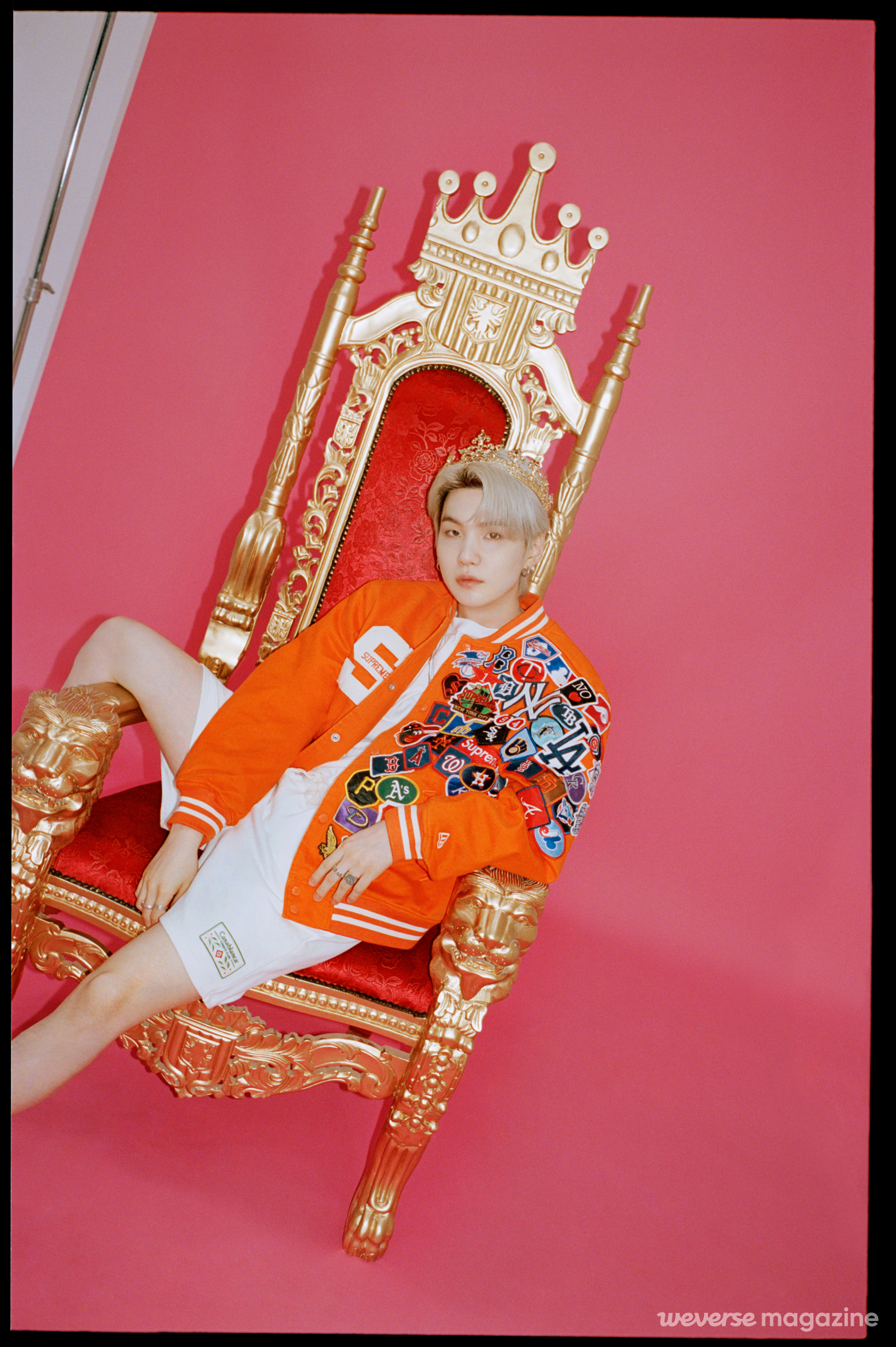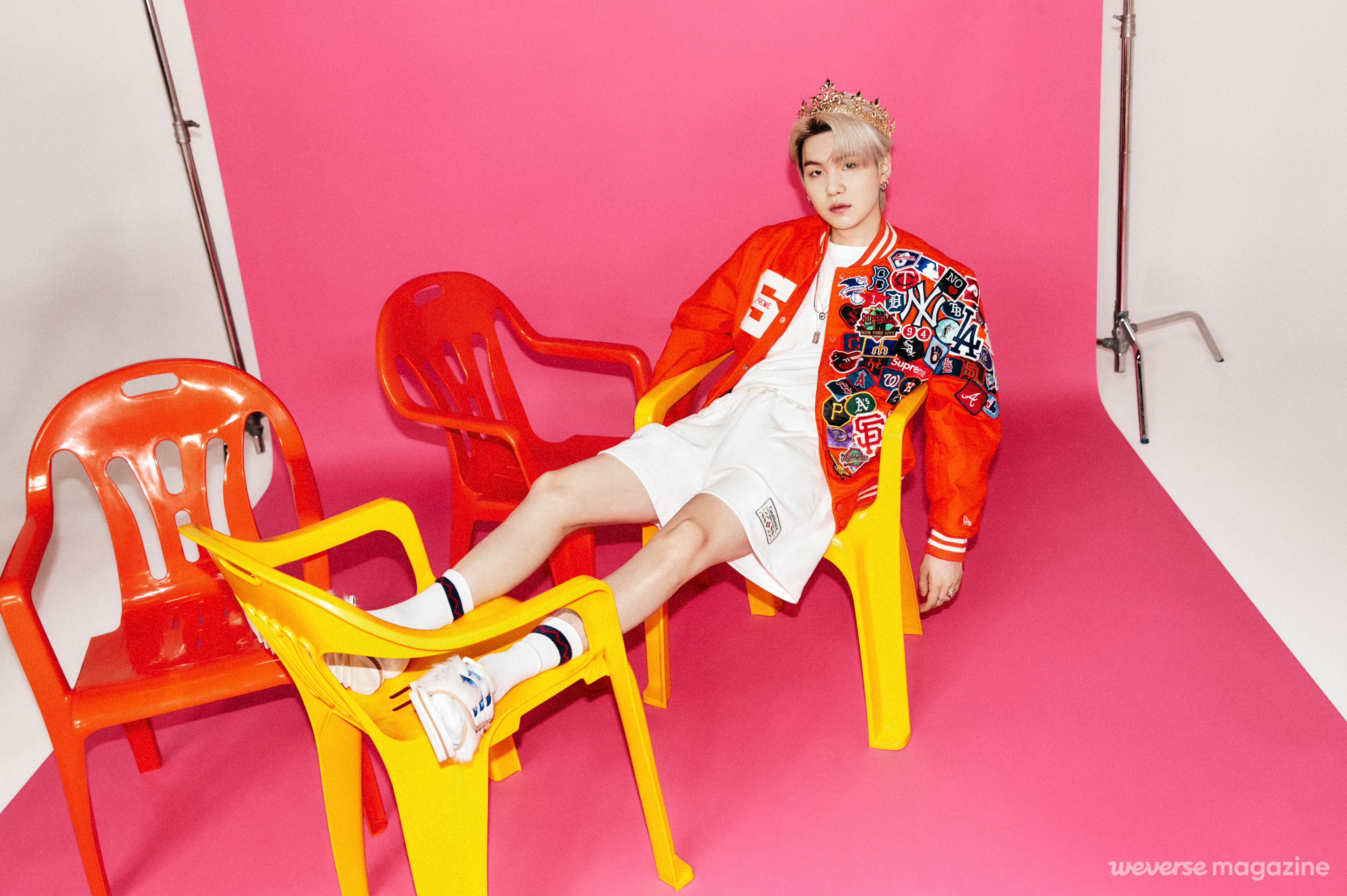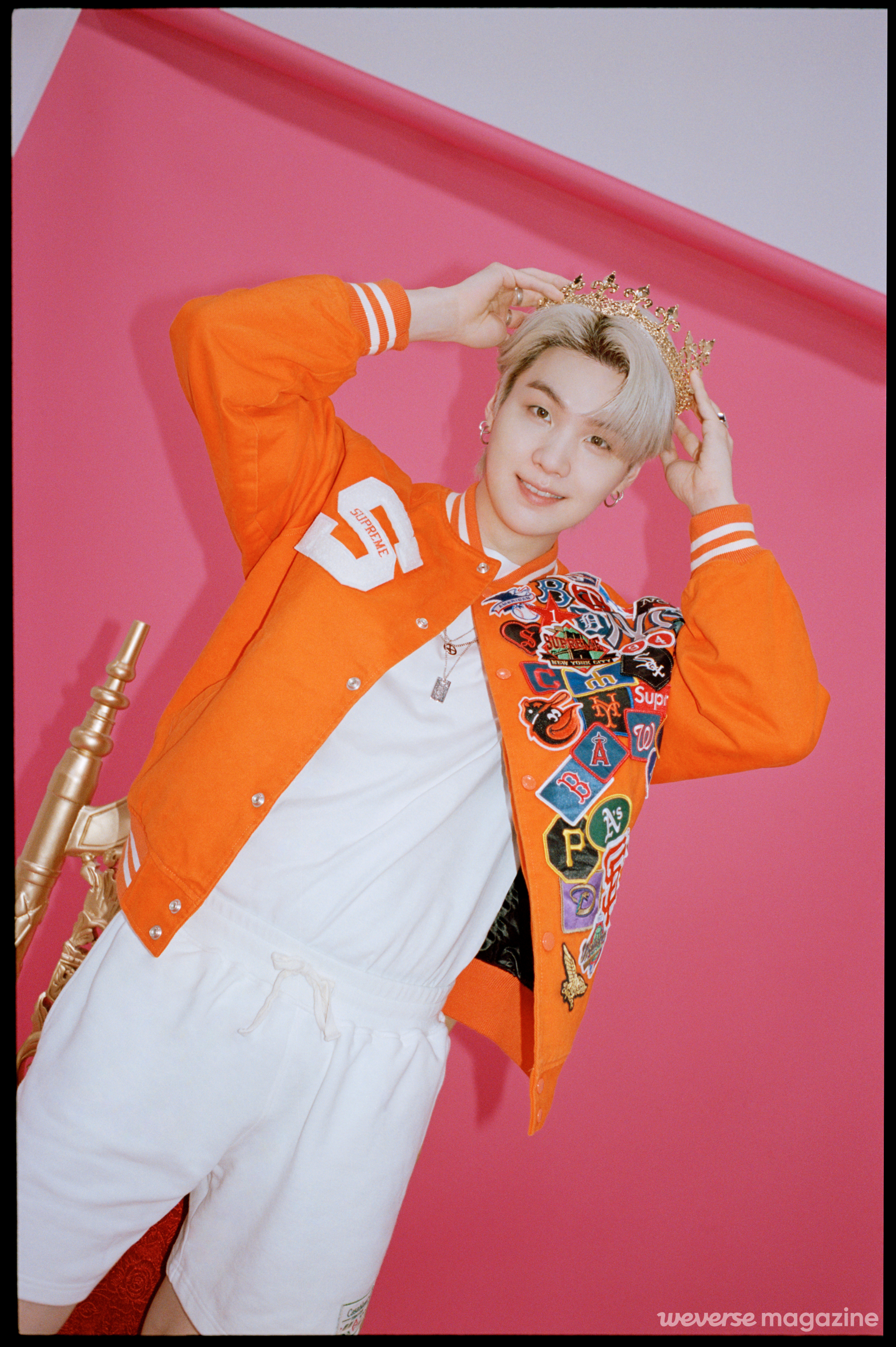INTERVIEW
SUGA: “This is the only thing I know how to really do”
BTS Butter album release interview
2021.07.31
On tvN’s You Quiz on the Block, SUGA told stories from before his debut. The period of his life when he struggled with how to live off his music. SUGA and BTS have kept going and going for eight years, and now he’s on their grounds, where he can do anything he wants musically. What began with that long journey is the story of SUGA holding his head up higher and staring at the future, reaching for it.
How are you feeling after your shoulder surgery? You’re doing physical therapy in parallel with work.
SUGA: I’m all right. I’m keeping up with the physical therapy, too. I had surgery last year because I wanted to be able to go back to work sooner. I have nothing else to do except music.
You said that there’s nothing for you to do other than music in the “BE-hind Story” interview on YouTube, too.
SUGA: It’s true. I tried gaming, but I have no talent for it. The people I play with online get so frustrated if I do. I mean, I’m working hard and got some recognition in my life, and yet people bash me so hard in games. (laughs)
I wonder if there’s a game you can do better in than you do in your career. You’re currently at your sixth week at number one on the Billboard Hot 100 [with “Butter, at the time of this interview]. (laughs) How are you feeling these days?
SUGA: When we were at number one for two weeks straight, I was like, Wow, this is so amazing! But after the fifth or sixth week, we really started to talk about it between ourselves: I really can’t believe this. Anyway, I feel like I have a responsibility. And I think I’ll end up thinking much, much more when we get ready for the next promotion. Even if I just try to enjoy this situation, it hasn’t sunk in. We can’t leave the country, plus there’s lots of issues in the world right now that are much more important than how well we perform on the charts.
As you say, it’s a tough situation, all over the world. How do you feel about releasing “Permission to Dance,” with its positive message, at this point in time?
SUGA: It seems like everyone around the world is really tired of this situation dragging out. I wanted to convey a message that tells people to keep hanging on to hope until the very end. Whereas we released the album BE in this situation, seemingly without any certainty, I believe things will slowly get better now. I don’t know if we can go back to the way things were before, but I’m still working with the hope that we can return to a situation that resembles what we had before.
Aren’t you tired of the pandemic being in this prolonged state?
SUGA: I look at it as, when you lose one thing, you gain another. I ended up being able to see my family more since I’m in Korea. In that sense, I feel more stable, so I’m not so much tired as hoping each day that things will become okay soon. I keep moving back and forth between work and home, and I’ve started to reflect on parts of myself I didn’t know about before. Like that I feel somewhat comfortable when I start and finish work at a certain time. While I used to have to go to bed at a certain time for work the next day or else I had a hard time getting up early, now I know I’ve figured out what time I should wake up at to make sure I feel good all day. What I pursue in life is emotional stability, and I don’t think there’s really anything too exciting or sad happening these days.
What effect do those emotions have when you work on music?
SUGA: They don’t have a big effect on it. I think it affects the way I write lyrics a bit, but I’m not working on any lyrics at the moment. I’ve been making music for a long time, so I think it’s possible for me to express emotions I’m not feeling in the moment. And it’s good that we released “Permission to Dance” in this kind of situation.
You sing rather than rap in “Permission to Dance.” In addition to rapping, you started singing more both before and after BE. What did you learn about your voice?
SUGA: “Permission to Dance” was a little bit difficult. I don’t draw a line between singing and rapping or anything, but it was different from our usual style, and the vocals were a bit high, too. So even though it took a while to prepare for it, I worked hard, and even when I asked some older musicians for their opinions, they all said, “It’s good the way you’re doing it. Don’t try to sing better—just sing more.” I think my only option is to sing more, like they suggested.
As far as style goes, you’ve been doing a smoother kind of pop music. Did any differences arise as a result of these changes?
SUGA: All things considered, the English was the hardest part. I paid close attention to my pronunciation in “Butter” and “Permission to Dance.” It wasn’t easy to capture that smooth feeling in the songs, so I practiced my pronunciation quite a bit. And I end up breathing a lot when I’m doing an English song, but the rap parts were a bit hard for that reason. There’s a clear difference from Korean songs, since English has so many syllables. But I don’t have any one method I stick with for my vocals yet, so I tend to try lots of different things out.
What do you make of BTS’s achievements over the past year with “Permission to Dance” and “Butter,” as well as the group’s change in style? In the space of a year, you’ve released songs in a style different from MAP OF THE SOUL: 7 or BE.
SUGA: As a producer, I think reactions are important to an artist who works within the field of popular music. With that in mind, speaking as a producer, “Dynamite,” “Butter” and “Permission to Dance” were the best choices. And musical tastes are different from country to country, and the cultures are different, too. Given that situation, I think it’s important that we’re a group who can send such a universal message out into the world.
BTS has really grown and changed a lot, starting with “No More Dream” and all the way to “Permission to Dance.”
SUGA: I think it’s a natural course of event for those of us who make pop music. Artists mix and match different genres as they grow, and the music develops as the people of its time listen to it. I’ve been listening to a ton of music lately, and thanks to the times we live in, if I listen to a song a few times, they recommend me more songs in a similar style. And after listening to them, I realized the style of hip hop is also changing and is splitting off into different offshoots. Other than hip hop, I also listen to a lot of instrumental music. I’ve always liked Hans Zimmer’s music. There have been many times where a movie I like turns out to have music by Hans Zimmer.
What is it about Hans Zimmer’s music that draws you in?
SUGA: I like orchestral music. There’s a lot of pop songs that are under the three-minute mark now, and whereas it’s sort of predetermined that they’re always written with intros that are four bars long, orchestral music can do a lot within its framework.
But, as can be seen in IU’s song “eight,” which you both produced and featured on, you broke out of pop music’s typical composition style and tried out a highly condensed progression. The composition of the chorus is very straightforward.
SUGA: Yes. I insisted that the flow be roughly cut in half from that of a typical song, and I expect more pop music will be like that in the future. And maybe even shorter as time goes on. I mean, these days there’s songs that are under two minutes, even.
Regardless, I felt the chorus in “eight” is extremely dramatic with its structure and the melody of the chorus. I thought it was rather grand in scale as well. Would you say that you’re attempting to mix your tastes and things you want to do into the structure of pop music?
SUGA: As you know, I love hip hop, so when I was first making music I thought it had to be hip hop no matter what and that I had to take pride in my own ideas and not accept any compromise. But while getting some experience at the forefront of pop music, I figured out that you can keep being stubborn or inflexible because there are people listening to you. There was a time I made music without any listeners before I became a member of BTS. But if someone were to ask if I stopped being stubborn about the music I’m making these days, the answer’s no. As I grew up and became an adult, I came to realize that I have to negotiate between what I want to do and the kind of music the public wants without compromising anything. When I give up on something I wanted to do, I ask myself, What will I get out of this? And conversely, when I want to do something, I ask myself, What can I get out of this? That’s how I keep my balance to make it to where I am now.
You have no choice but to think about those things when you work on other artists’ songs, especially when you’re a producer.
SUGA: I’m BTS’s SUGA, and I’m Agust D, and when I’m producing, I go by “by SUGA.” But when it comes to by SUGA, I make perfectly commercial music. I’m the producer for those songs, sure, but the owner is someone else, you know? In that case, they’re commissioning my work. But they wouldn’t think about just leaving it all with SUGA. The artist’s label has to think carefully about whether to commission me for producing and consider my situation, too, and those people must be hoping for something commercial. That’s the most important part of working with outside people. Actually, that kind of work isn’t much of a benefit to me, to be honest. Oh, he can write this kind of song, too. That’s all. The more valuable thing I can get from it is the recognition and records the artist or the company will get with the song instead.
As you noted in your previous Weverse Magazine interview, when you discussed your “interest in the music industry in the US,” you seem to constantly think about the things artists can do within the framework of the music industry.
SUGA: I don’t know. It’s just that I’ve become more certain since the pandemic started that I’m the kind of person who always has to be doing music. That much I know for sure, so I want to keep on making good music. And the pop music market is something that came about because there were people listening, and there’s a long history to the US music market, and it possesses the most influential charts in the whole word. So then I thought, Wouldn’t they have gone through all the same things that we have? And really, whenever I talk to other pop stars, the situation is always similar. The US is also more realistic about commercial results than any other country. I wanted an accurate picture of how those people work. Right now, Korean pop music’s spread is in full swing and we need more good artists to keep popping up. From a producer’s standpoint, if that’s going to happen, I think the key is how well we can mix our music and the characteristics of overseas music industries overall.
How did it feel to be in the lineup for the Grammy Awards, one of the icons of the US music industry?
SUGA: The feeling was less immediate because we couldn’t be there in person, and it wasn’t a huge distinction, but the performance made me think, This is different, because it’s the Grammys. What changed my view from the first time I went to an American music awards ceremony was, the first time I went, I was really scared of the world’s biggest music market. But when I look back now, I don’t think I had any reason to feel that intimidated. To be honest, I have only now begun to enjoy the awards ceremonies; I wasn’t able to then.
It’s no exaggeration to say that you’ve achieved most of the things that you can as an artist in the music industry. What steps do you think are necessary for the artists who follow after BTS?
SUGA: The way artists work seems so difficult. They make an appearance on a different music show every day once the promotional period begins, meaning the exhaustion artists face is enormous, and that fatigue often results in injuries as it adds up. That kind of music show is for promotional purposes, so it’s not like the artists can earn a proper income from them. On top of that, despite all the promoting, there’s no visible outcome, so they inevitably lose morale. If possible, it’d be nice to have one of the performances be really high-quality, even if it’s just the one, but in this environment I’d say that’s pretty difficult. And since our job doesn’t fit the common conception of work, there’s ambiguous boundaries when it comes to issues of legal protection as well. We need a lot of improvements to be made to the industry and its system.
They demand a lot of things as collateral for success, yet success is extremely difficult to attain.
SUGA: The great thing about the label I’m with is they listen to the artists’ opinions. I think both we and the label know to a certain degree what kinds of activities would be best commercially speaking. But the question is whether the body can endure it or not. If the fatigue builds up as you continuously do those promotional activities, it’s hard to do them the way you did when you first debuted. In that case, I think the label ought to actively accommodate the artist’s views about what they can and cannot do. An attitude that’s just like, Oh, we made you kids, and as long as you just do what we tell you to it’ll all work out, so just do it—I think that really doesn’t make any sense. Of course, there could still be situations where the label has to be pushy like that, obviously. But I heard there’s been times where a label will just say, Do it, without any explanation to the artist, or, Why are you talking so much? I think that’s the biggest issue and it’s destroying the industry. If you just see the artist as a product, how can they do anything creative? I really think it’s very contradictory to ask the people on stage to put on an enjoyable performance when they’re experiencing neither fun nor enjoyment.
That reminds me of the music video for “Daechwita” somehow. You appear onscreen as both a rebel character and a king, looking as different as your situation when you first debuted with BTS and your situation now.
SUGA: There was a lot I wanted to do in “Daechwita,” not just musically but also visually, and a lot of ideas came to me as I came to reflect on who I am as a person while working on the music video. It naturally occurred to me to separate SUGA, by SUGA and Agust D. The character I played in that video who wasn’t the king was a stranger. It takes place during the Joseon era, but then there’s cars and guns, which of course don’t belong in that era. I think we’ve been living our lives that way. Right from our debut, a portion of the hip hop lovers criticized us by saying, They’re idols. But at the same time, we heard things like, They’re not idols. I didn’t know which drumbeat to march to, so I think that’s why each of our albums took a different direction than people were expecting. But I don’t think I can call myself a stranger in this situation anymore. So these days my main goal is to keep going with BTS for a long time. Having a huge audience show up at our concerts is nice, but I think the goal for all of us is to make sure the group can keep making music even as we get older. I think right now we’re thinking a lot about how we can have fun and be happy on stage.
What do you mean when you say fun and happy music?
SUGA: I think people are happier the busier I am, so lately I’ve been thinking that I need to focus a little more. I figure we should do as much as we can for ARMY since they feel happy watching us. We’ll continue to try our best, so I hope they believe in BTS and keep their eyes on us.
So that’s why you do music.
SUGA: This is the only thing I know how to really do. Other than music and BTS, there’s nothing special about me when I look at this 28-year-old Min Yoongi. That’s why I want to keep doing this.
Article. Myungseok Kang
Interview. Myungseok Kang
Visual Director. Yurim Jeon
Project Management. Yejin Lee
Visual Creative Team. Sunkyoung Lee, Yeonhwa Cha(BIGHIT MUSIC)
Photography. LESS / Assist. Hyungsang Kim, Donghoon Park
Hair. Som Han, Mujin Choi, Daeun Lee, Leeyoung Lim
Makeup. Dareum Kim, Seonmin Kim, Yuri Seo
Stylist. Hajeong Lee, Hyesoo Kim, Heeji Seo, Jihoon Lee, Minji Son
Set Design. Seoyun Choi, Yehui Son, Ayeong Kim(darak)
Artist Protocol Team. Jingu Jang, Subin Kim, Jungmin Lee, Dasol Ahn, Juntae Park, Seungbyeong Lee, Hyeonki Lee, Daeseong Jeong, Jaekeun Song
Copyright © Weverse Magazine. All rights reserved.
Unauthorized reproduction and distribution prohibited.
Unauthorized reproduction and distribution prohibited.
Read More
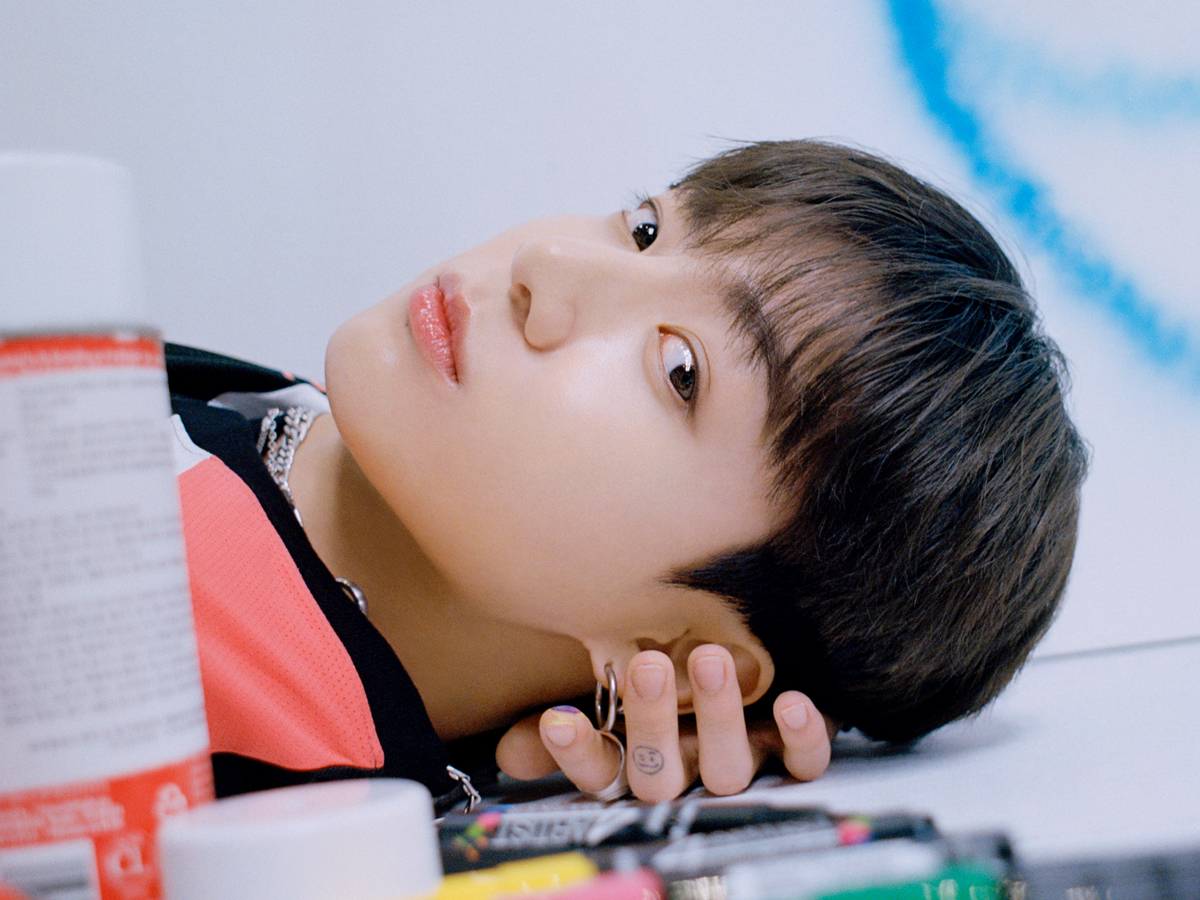
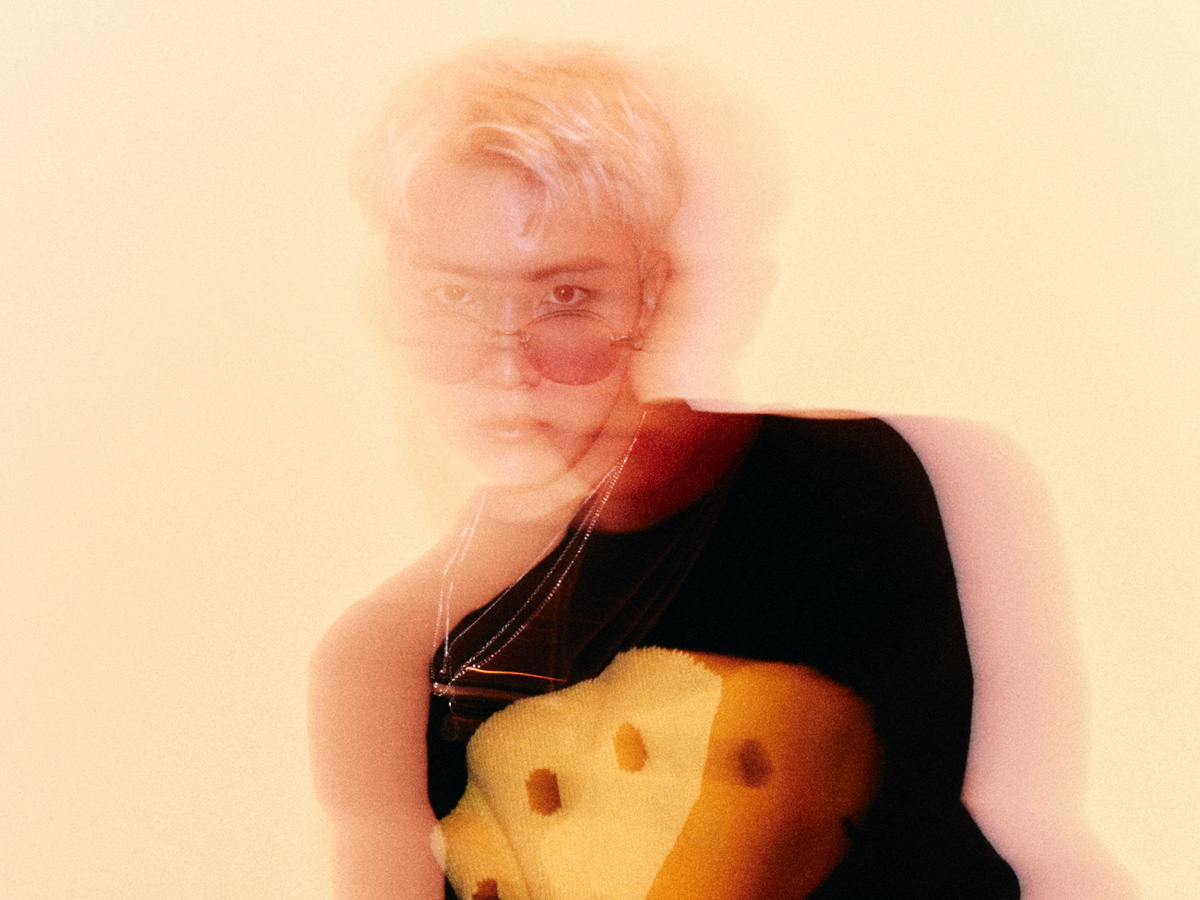
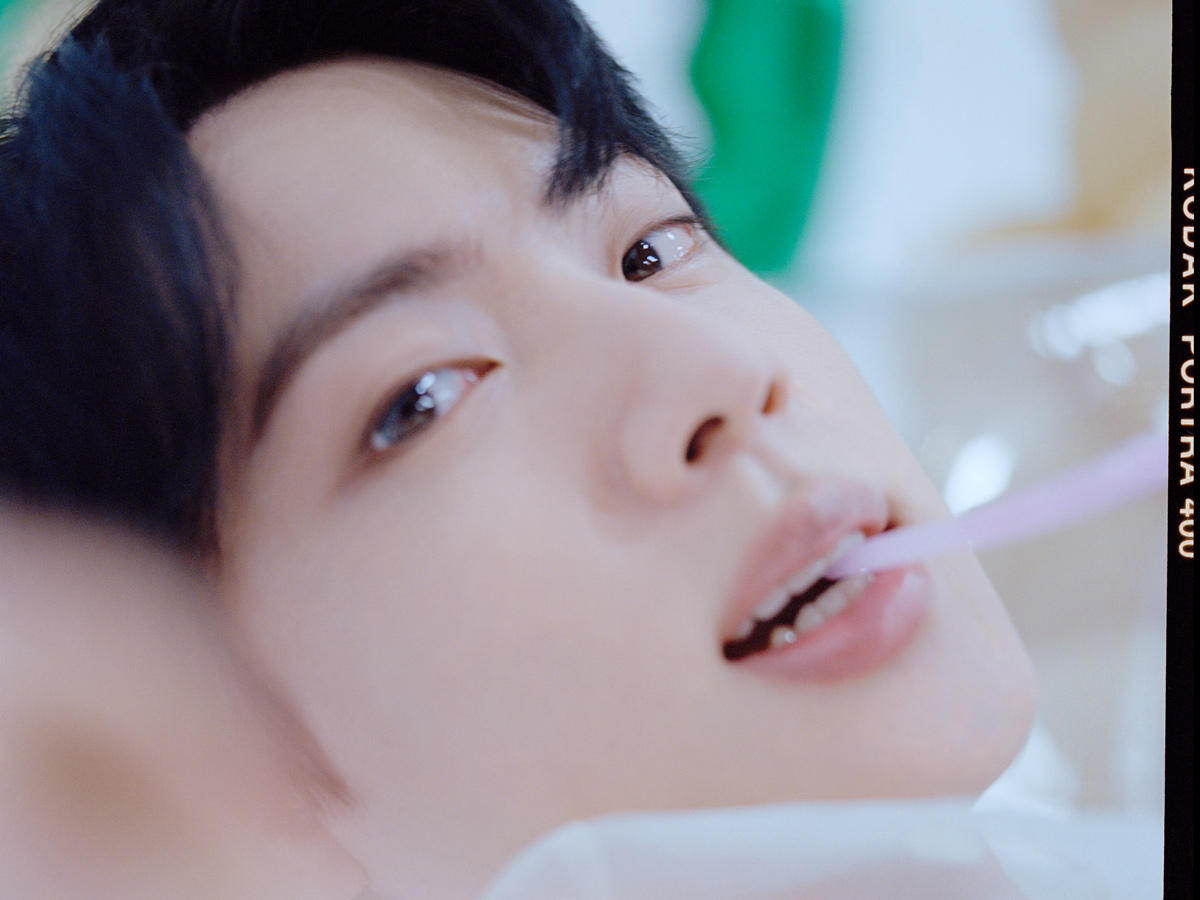
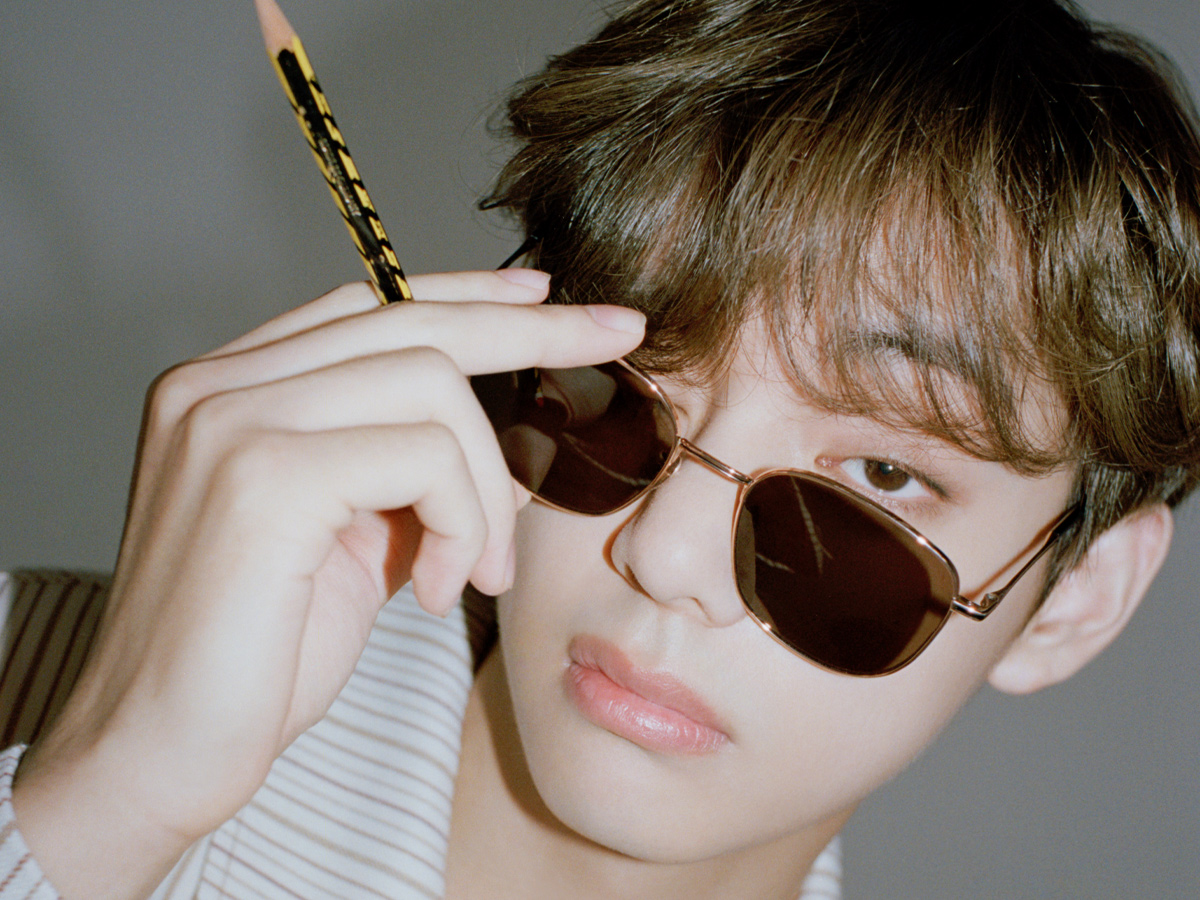
- RM: “I hope I’m on my way somewhere”2021.07.30
